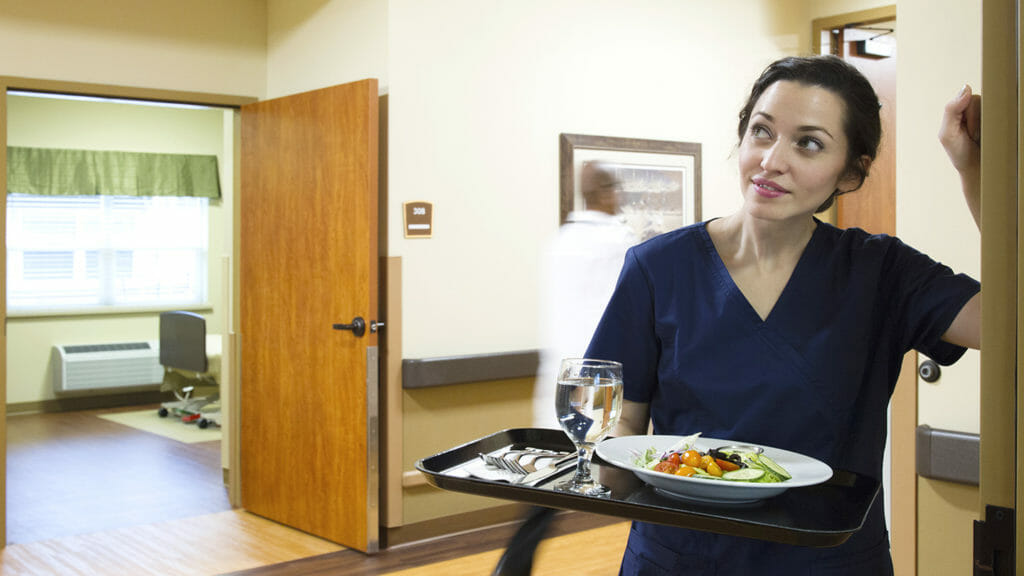

A bill before the Washington state legislature would exempt senior living communities from pricey retail sales taxes on the meals they provide to residents as part of their rental agreements.
House Bill 1431 would clarify that meals provided to senior living community residents — specifically, independent living residents — as part of their rental agreements are not subject to sales and use tax.
Under current law, the sale of meals to consumers is considered a retail sale, subject to retail sales tax and business and occupation (B&O) tax under the retailing classification.
Meals provided by assisted living communities, nursing homes and hospitals are not subject to retail sales tax. But meals provided by a senior living community that does not provide healthcare services — independent living — are subject to retail sales tax, according to the state Department of Revenue, and the community also must pay retailing B&O tax on the selling price of the meals.
The bill would exempt food, drink and meals furnished by a senior living community — including assisted living and continuing care retirement / life plan communities — from retail sales tax. Communities that do not provide meals as part of their healthcare services would have the B&O classification changed from retail — which carries a 0.484% tax rate — to the service and activities classification, which is taxed at a lower rate of 1.5% or 1.75%, depending on a community’s annual taxable income.
Carma Matti-Jackson, CEO of the Washington Health Care Association, told McKnight’s Senior Living that the state Department of Revenue enacted a recent policy change and is assessing sales tax on independent living resident meals. No sales tax is assessed on assisted living resident meals, however.
“It’s both administratively difficult and inequitable to tax independent senior meals in this setting,” Matti-Jackson said. “Seniors who choose to remain home for care are not taxed on their meals, nor are seniors who receive assisted living care — neither should seniors in these communities.”
WHCA said that senior living communities provide housing and services that allow older adults to live independently and then age in place to receive assisted living care without having to relocate for those services.
The association also asserts that in guidance provided by the Department of Revenue to the senior housing industry in 1982, and reaffirmed in 1989, the agency stated that meals were not subject to sales tax. But that long-standing guidance changed to assess a sales tax on meals provided to residents who do not need help with daily living activities.
During a Feb. 2 public hearing on the bill, a representative from WHCA indicated that the tax could add $500 to $750 annually to costs for independent living residents.
Bre Grubbs, executive vice president of revenue strategies for Seattle-based Leisure Care, testified during that hearing that the senior living management company operates eight communities in Washington state offering independent living and assisted living under one roof.
“Senior meals should not be taxed,” Grubbs said, adding that the tax would apply to 1,100 of the organization’s residents. “Food service is more than just nutrition. Meals are vital gathering times where our residents come together, share stories and connect.”
A Department of Revenue representative said that the agency was neutral on the legislation and had no objection to the core concept of the bill but that it does take issue with it applying retroactively if it is enacted in its current form. He also said that the law regarding the tax has been in place since 2005.


